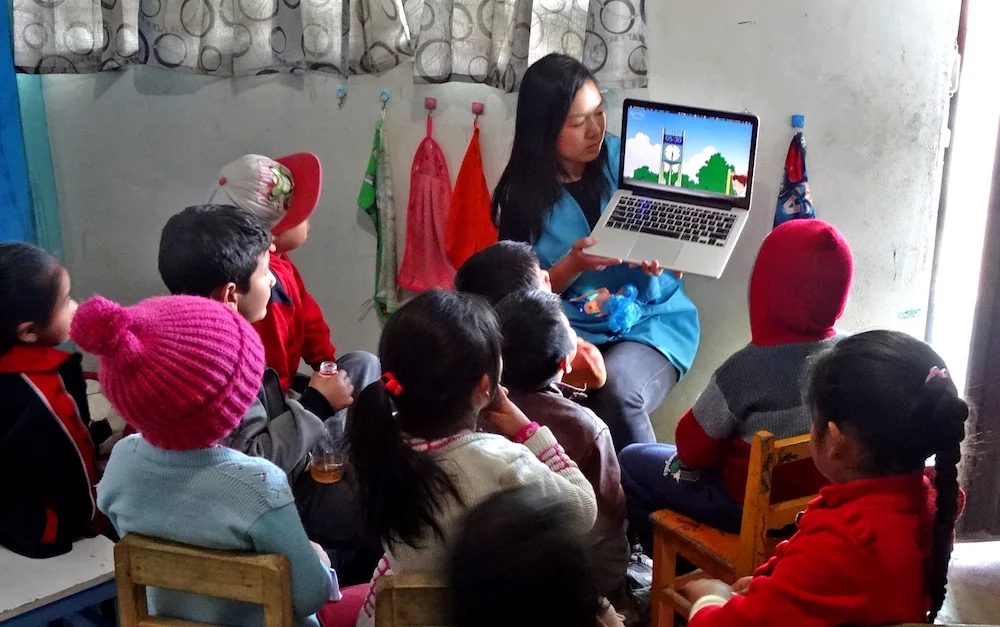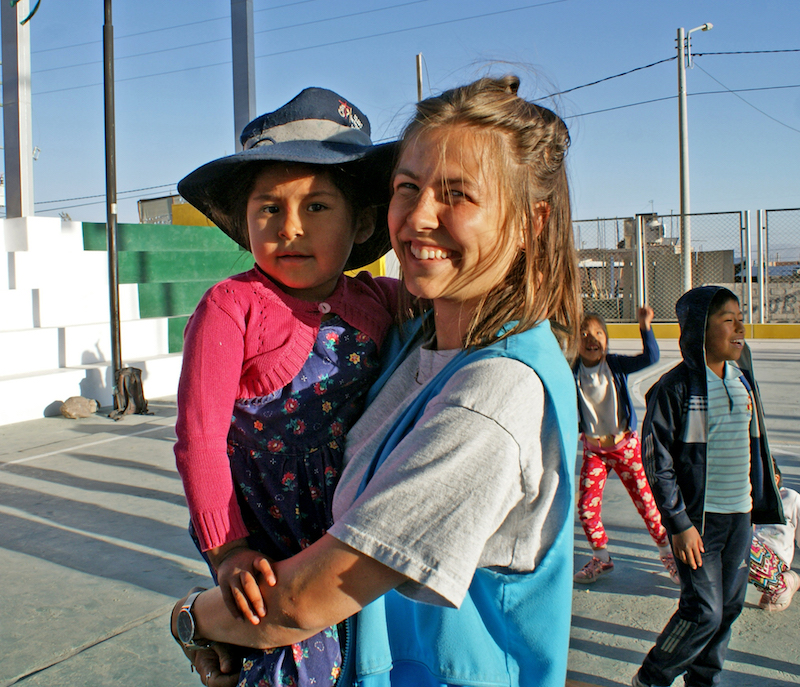HOOP Brings Hope to Peru
In his former life as a management consultant, Yves Trionnaire helped large companies run better. He says he learned a lot from brilliant colleagues solving tough problems with high stakes. The pay was good too. But the rewards pale, says Mr. Trionnaire, next to his current assignment as education and volunteer coordinator at HOOP, short for Helping Overcome Obstacles Peru, an NGO that assists disadvantaged children and their families.
Most HOOP families live in Flora Tristán, a community in the city of Arequipa that existed when Incas ruled Peru. Named for a 19th century French-Peruvian woman writer who fought for workers’ rights, Flora Tristán resembles an informal settlement, an asentamiento humano or pueblo joven. Many modern residents move there in hopes of a better life amid daunting hurdles:
Urban fringe populations like Flora Tristán with indigenous backgrounds and heritage also commonly experience racial discrimination and find themselves relegated to a lower status in the social and cultural hierarchy of the city. Living, social and economic conditions therefore remain difficult for the community who desire to attain a basic and decent standard of living like many of their other urban counterparts in Arequipa. [Source: HOOP website]
HOOP is committed to breaking the cycle of poverty through enhancing education of people from all ages. Progress begins with small steps, says Mr. Trionnaire, who speaks fluent Spanish and English in addition to his native French. Each changed person changes the world. Keeping children safe is a good start. “We provide after school activities for the children so that they don’t stay in the streets,” he says. “That can be dangerous.”
Many children who embrace the HOOP curriculum go on to college and some even return home to teach. “We try to give them an appetite for higher education,” Mr. Trionnaire says. Toward that end, HOOP has provided free education, social and health programs since 2012.
An international group of HOOP co-founders from Peru, Austria, the United Kingdom and Taiwan, shared a vision rooted in four core values: integrity, collaboration and dedication. Integrity hinges on high-quality, ethical and impactful work to professional standards with transparent reporting. Respect demands equal treatment for everyone, regardless of gender, race, background or sexuality. Collaboration fosters close partnerships with beneficiaries, staff, supporters and volunteers, all working together to produce durable social change. Dedication means striving for excellence, taking pride in work that delivers the very best possible support.
Even in mountainous Peru, learning English can open doors. “English speakers have won the linguistic lottery,” HOOP reports on its website. “The cultural and economic capital of English is undeniable all across the world. It is the language of diplomacy, of tourism, of business and international commerce.” HOOP classes level the playing field with more affluent Peruvian communities where English is often taught.
“HOOP gave me the opportunity to improve my English, learn new vocabulary, gain confidence and interact with foreign people,” says a former student. “HOOP was one of the best amazing experiences in my life.” In 2013, HOOP opened English classes to parents twice a week.
English lessons launched HOOP, but other initiatives have become popular. Homework help sessions tutor students who need help understanding what they have been taught at their local day-school. A kindergarten program nurtures children from three to five years old, spurring social and intellectual development at a critical growth stage. HOOP also sponsors playtime activities and sports that encourage teamwork skills.
Community workshops, legal support, psychological guidance and other developmental services furnish platforms for social work. Free classes help parents develop important social and family skills with an eye to boosting self-esteem that equips children to overcome obstacles. They can learn carpentry and leadership skills. Classes in finance teach mothers to manage limited financial resources and avoid onerous debt. Volunteers teach most classes.
Mr. Trionnaire still applies lessons from management consulting. Overseeing education at HOOP requires people skills, the ability to manage a lot of information and competing priorities. “Making sure projects go from A to Z, that’s what I was doing before,” he says. “Now I’m using those skills in a career with more meaning.”
[Images courtesy of HOOP]



